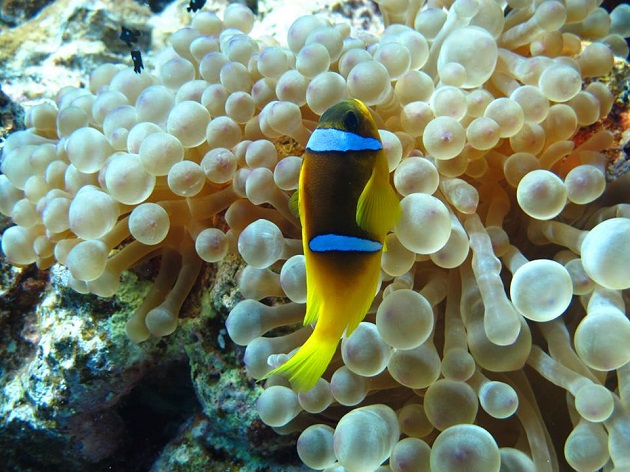The clownfish
Maybe if we were more aware of how decisive a person’s childhood turns out to be in their adult life, we would treat children with greater wisdom and sensitivity
25 JUNE 2016 · 17:10 CET

The little two-striped Red Sea clownfish (Amphiprion bicinctus), like this one that I caught on camera to the south of the Sinai peninsula, takes refuge among the tentacles of poisonous sea-anemones, where it is safe from any possible attacker.
They are protected from the stinging cells of the anemone by the layer of mucus that covers their body, and which bears the “signature” of the species of anemone in which it finds refuge. When the fish is no more than a tiny larva it takes up residence at the bottom of its host, where it acquires the immunity that will protect it throughout its life from the poison that is specific to this species of anemone.
In return, clownfish bring food right up to the mouth of the anemone and, thanks to their continuous movement, keep its oral disc and tentacles clean, thus averting the risk of bacterial infection. Thus there is a good, mutually beneficial, relationship between the two species. Something like this occurs between humans.
The education and the stimuli that we receive during the first years of our lives usually determine, for better or worse, the rest of our lives. It is true that our genetic legacy plays a very significant role in shaping our character. Nevertheless, the determining factor is generally the environment in which we grow up.
Maybe if we were more aware of how decisive a person’s childhood turns out to be in their adult life, we would treat children with greater wisdom and sensitivity, just as the Bible instructs us to: “Start children off on the way they should go, and even when they are old they will not turn from it.”
Published in: Evangelical Focus - Zoe - The clownfish
